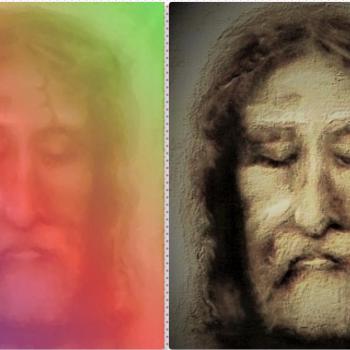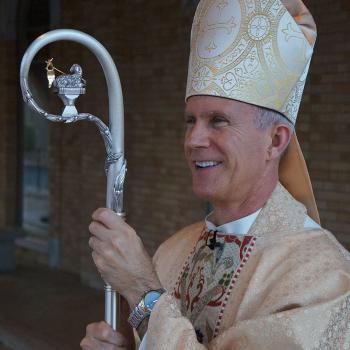
In Mere Christianity, C.S. Lewis suggested that there was a natural human instinct or knowledge for morality, one which can be found when discussing the concept of “fairness.” This moral instinct might not be specific in its content so that different people will reason out different moral or ethical claims; nonetheless, the desire that most people show for things to be fair which comes out when they feel they are treated unfairly indicates a universal moral foundation accepted by most peoples:
But the most remarkable thing is this. Whenever you find a man who says he does not believe in a real Right and Wrong, you will find the same man going back on this a moment later. He may break his promise to you, but if you try breaking one to him he will be complaining “It’s not fair” before you can say Jack Robinson.[1]
This immediate appeal to fairness, Lewis explained, indicates that, beyond the words and categories used for morality, humans naturally follow principles which they use in their interaction with each other. There are standards of behavior expected by all, and even those who transgress them will demonstrate their knowledge of them and use them when they feel they have been mistreated. The way people quarrel with one another, trying to demonstrate how and why their interests are fair in contrast to those they are fighting, also indicate this universal instinct or knowledge which manifests itself in human conduct even if it does not manifest itself in an explicit ethical formulation.
What might surprise many is that this is not uniquely human. Scientists observing animal interactions see that they too have various rules and expectations which they follow. Marc Bekoff in The Emotional Lives of Animals described how this has been observed in the way animals play with each other:
If I expect a friend to play with me and he acts in an aggressive manner – dominating or hitting me rather than cooperating and “playing” – then I will feel that I am being treated unfairly because of a lapse in social etiquette. We have found, by studying the details and dynamics of social play behavior in animals, that animals exhibit a similar sense of fairness. For instance, one way we know that animals have social expectations is that they show surprise when things don’t go “right” during play, and only further communication keeps play going. For example, during play when a dog becomes too assertive, too aggressive, or tries to mate, the other dog may cock her head from side to side and squint, as if she’s wondering what went “wrong.” [2]
Such observations have led scientists (and many philosophers) to realize that, although moral codes might differ from species to species, there are rudimentary moral qualities which animals follow in their engagement with each other. Jeffery Moussaieff Masson and Susan McCarthy in their book, When Elephants Weep, give an instance of such an observation, where a husky is stopped from poor treatment of mice and parakeets by a pug:
Elizabeth Marshall Thomas gives an instance that may illustrate a sense of justice or perhaps a sense of propriety that underlies rectitude. Her husky, Maria, one day discovered that by rushing around a cage full of mice and parakeets, lunging at the occupants, she could send them into a hysterical frenzy. The pug Bingo ran in, slammed his body into the much bigger Maria, and when she lunged at the cage again, uttered a loud bark and slammed against her once more. Maria left the room. Thomas was surprised because Bingo was smitten with Maria and usually did not oppose her in any way. Whether Bingo was motivated by compassion for the mice and parakeets, by vicarious ownership of the mice and parakeets, or by disapproval of Maria’s obstreperousness, it seems undeniable that he wanted to stop her aggression and make her behave better toward the other animals. [3]
Scientists have observed many instances in which animals have a sense of fairness, that same quality which C.S. Lewis indicated as being central to indicating humanity had its own universal moral sensibility. When Maria treated other animals unjustly and unfairly, Bingo came in to stop, showing a sense of self-giving virtue and empathy for the livelihood of others. It could be said that Bingo believed Maria was being unfair. What is not fair is not right, and from that notion, the difference between right and wrong can be learned. The level of understanding, the sophistication of the moral reasoning different animals might possess might differ with differing species, but when animals demonstrate for us that they also have an innate understanding of fairness (and other social conventions) animals demonstrate that they share with us the ability to engage in moral decisions in their actions. Bingo seems to have judged Maria and done what he could to stop her from her “immoral actions.” This might challenge various traditional beliefs about animals, but, as Bekoff explained, scientists continue to gain more and more evidence that animals have a morality of their own, which even if it is not as sophisticated as our own, nonetheless demonstrates they have a range of moral actions they can perform:
Traditionally, morality has been the exclusive right of humans, even sometimes the very definition of our humanness, and some scientists and others still vehemently resist the idea that we might actually share this quality with other beings. Yet more and more biologists, neuroscientists, philosophers, and ethologists are beginning to think that morality may be a broadly adaptative strategy that has evolved in many species. I’m not saying that animal moral behavior is the same as human moral behavior. Rather, my proposal is that the phenomenon to which “morality” refers is a wide-ranging biological necessity for social living.[4]
Just as different animals have different qualities, different potentials within, so it should not be surprising their moral capabilities will be different from us and from each other; it will be different, but not non-existent. Those who try to argue against their morality suggest we can and must judge them solely on the basis of what humans are capable of doing: it would be like judging the speed of a snail to that of a jaguar, saying that this means snails do not move. What we need to realize is that morality is related to potentiality, and the more potentiality a subject has as a subject, the more they will possess a moral responsibility towards others. This is exactly what James told us when he said those who know more and become teachers have more responsibility than those who do not (cf. Jas. 3:1). We might not know their potential, their moral range, and so the moral expectations placed upon them, but we can recognize that animals themselves have lives of their own, have potentials of their own, and so have moral possibilities which they can work out for themselves.
In general, because of our ignorance, we should let the judgment of their moral capabilities, and their success or failure at living them out, with God (or those God has given the ability to recognize and know them); but, in specific instances, it is possible to recognize that animal might share in our moral failures and success, whereby they will share with us the consequences of our joint activity. Though many Christians might find this surprising, Scripture hints at this in the Book of Jonah: when the people of Nineveh repented of their sins, they were said to engage in a universal act of penance towards God, an act animals were said to share with their human neighbors:
And the people of Nineveh believed God; they proclaimed a fast, and put on sackcloth, from the greatest of them to the least of them. Then tidings reached the king of Nineveh, and he arose from his throne, removed his robe, and covered himself with sackcloth, and sat in ashes. And he made proclamation and published through Nineveh, “By the decree of the king and his nobles: Let neither man nor beast, herd nor flock, taste anything; let them not feed, or drink water, but let man and beast be covered with sackcloth, and let them cry mightily to God; yea, let every one turn from his evil way and from the violence which is in his hands. Who knows, God may yet repent and turn from his fierce anger, so that we perish not?” When God saw what they did, how they turned from their evil way, God repented of the evil which he had said he would do to them; and he did not do (Jonah 3:5-10 RSV)
According to Jonah, Nineveh’s doom was halted because the people and animals of Nineveh alike repented of their ways and engaged in penance before God. The various beasts of the land would have likely suffered with the destruction of Nineveh; they shared in the moral corruption of the land, even as they shared in the reparations for their moral deficiencies and the restoration which took place because of it. Now, we might not know how each particular kind of animal could become corrupt, but to see Scripture as indicating that they could do a positive moral act of penance suggests, from a Christian standpoint, that they possess some level of moral expectation and ability, and so what scientists have been observing in their studies of animals should have been something Christians (and Jews) should at least have considered possible. But, as Marc Bekoff said above, one of the ways humans have tried to suggest they are superior to other animals is by saying they uniquely have moral capabilities, and so it has been and continues to be a long fight to overcome this prideful stand and allow for a more qualified understanding of the difference between humanity and the rest of animal life on earth.
Thus, though we might not be able to get inside the head of animals, to know their thoughts like we know our own, we can begin to learn about them and their actions, and discern various rules which they seem to follow within their own domain of existence. These rules can change and mutate, and indeed, be learned, as can be seen by the way many animals are trained by human handlers: those who would use this as proof that animals not possess innate moral sensibilities must then follow through and deny it for humanity because humans, likewise, are socialized and learn to sift through moral quandaries and established various rules for society to follow, rules which have to be taught and learned for them to remain effective. These rules could not be taught and understood if there was not a foundation for them to be developed, though of course, the complexity of human engagement of development of that foundation differs in quality with that of other animals. This qualitative difference has been the reason why many have tried to ignore or reject the moral potential found within other animals, but it is this qualitative difference which we must begin to explore more, to see how and why animals act within the moral domain in which they exist and thrive. When we do this, we can take our task as stewards over creation much more seriously, because then we can shape and enhance their moral development in the way others (such as angels) have been said to help develop and shape our own in history.[5]
[1] C.S. Lewis, Mere Christianity (New York: The Macmillan Publishing Company. 1965), 19.
[2] Marc Bekoff, The Emotional Lives of Animals (Novato, California: New World Library. 2007), 89.
[3] Jeffery Moussaieff Masson and Susan McCarthy, When Elephants Weep (New York: Delta, 1995), 215.
[4] Marc Bekoff, The Emotional Lives of Animals, 87.
[5] Obviously, care must be taken, so that animal autonomy is not overcome when we try to encourage their moral development. They have to be treated as subjects with their own particular good, and so their own particular rights. What we must do is encourage them to develop themselves as subjects in the best, most moral fashion possible in relation to their own potentiality.
Stay in touch! Like A Little Bit of Nothing on Facebook.
If you liked what you read, please consider sharing it with your friends and family!
















